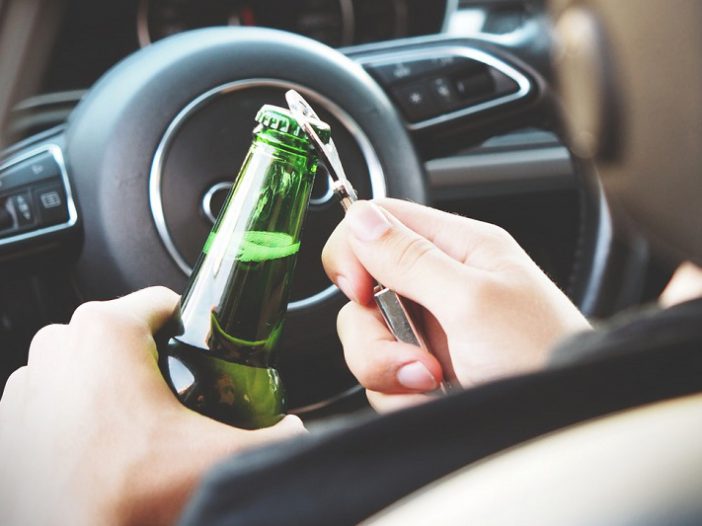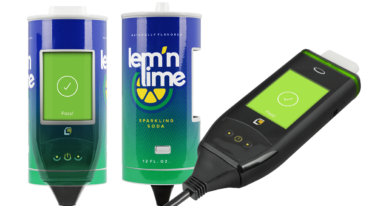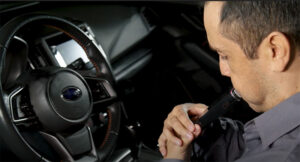
5 Life-Threatening Dangers of Drinking and Driving
Impaired Judgment & Poor Decision-Making
One of the most significant effects of alcohol is its impact on your judgment. Even a small amount of alcohol can impair your ability to make responsible decisions, making it more likely that you will take risks you normally wouldn’t.
For instance, while sober, you might recognize that you’ve had too much to drink and opt for a designated driver or a rideshare service. But when intoxicated, the thought of waiting or paying for a ride might seem like too much of a hassle, leading you to get behind the wheel when you shouldn’t.
Did you know? Even at a BAC of just 0.02%, studies show reduced visual function and difficulty multitasking, both of which are essential for safe driving.
Additionally, alcohol makes you more prone to distractions. Texting, eating, or simply being inattentive behind the wheel are all dangerous behaviors that are even more likely to occur when alcohol clouds your judgment.
Slowed Reaction Time & Reduced Coordination
Alcohol significantly slows down reaction time and affects motor skills, making it harder to respond quickly to unexpected events on the road.
- If another car suddenly brakes in front of you, your delayed reaction could cause a serious collision.
- If a pedestrian unexpectedly crosses the street, you may not have enough time to stop.
- If an obstacle appears in the road, your impaired reflexes may prevent you from avoiding it in time.
Furthermore, alcohol reduces hand-eye coordination, making it difficult to steer, brake, and accelerate properly. You can test your coordination by trying to walk in a straight line or balance on one foot—if you struggle with this while intoxicated, imagine how unsafe it would be to drive in that condition.
Blurred Vision & Decreased Awareness
Clear vision is essential for driving, but alcohol reduces your ability to see clearly and process visual information quickly.
Alcohol consumption can cause:
✔️ Blurry or double vision
✔️ Difficulty tracking moving objects
✔️ Reduced peripheral vision (making it harder to see pedestrians, cyclists, or other vehicles)
When driving, you need to judge distances accurately, read road signs, and respond to traffic signals. Even a small amount of alcohol can hinder these abilities, putting yourself and others in danger.
Increased Risk of Car Accidents & Fatalities
Despite ongoing awareness campaigns, drunk driving remains one of the leading causes of fatal car crashes.
Drunk Driving Statistics (Updated 2024):
🚗 Over 10,000 people die in alcohol-related crashes in the U.S. every year—accounting for nearly 30% of all traffic deaths.
🚗 1 in 3 car crash fatalities involves an intoxicated driver.
🚗 Drivers with a BAC of 0.10% are seven times more likely to be involved in a fatal crash, and those with a BAC of 0.15% or higher are 25 times more likely.
🚗 Even at a BAC of just 0.02%, drivers are 40% more likely to crash than sober drivers.
These numbers prove that drunk driving is not just a personal risk—it’s a danger to everyone on the road.
Serious Legal Consequences of a DUI/DWI
Beyond the physical dangers, getting caught drinking and driving can lead to severe legal, financial, and personal consequences.
If you are pulled over for suspected driving under the influence (DUI) or driving while intoxicated (DWI), you will likely be subjected to:
🚔 Field sobriety tests (to assess coordination and cognitive function)
🚔 A breathalyzer test (to measure your BAC level)
🚔 Immediate arrest and a mandatory court appearance if you fail
Legal & Financial Penalties for a DUI/DWI:
❌ License suspension (often for 6 months to a year, or longer for repeat offenders)
❌ Expensive fines & court fees (often ranging from $500 to $10,000)
❌ Jail time (especially for repeat offenders or cases involving injury/death)
❌ Higher car insurance premiums (which can double or triple after a DUI)
❌ Mandatory alcohol education programs (which you must pay for out-of-pocket)
Additionally, a DUI can have long-term consequences, including difficulties finding employment, renting a car, or even traveling to certain countries (such as Canada, which may deny entry to those with DUI convictions).
The Best Choice? Never Drink & Drive
Despite the risks, thousands of people still choose to drink and drive every day. But the truth is, it’s not worth the gamble—because while you might make it home safely once, the next time could result in an accident, arrest, or even death.
Alternatives to Drinking & Driving:
✔️ Plan ahead—designate a sober driver before you go out.
✔️ Use rideshare apps like Uber or Lyft to get home safely.
✔️ Take public transportation or call a taxi.
✔️ Stay overnight at a friend’s place if you’ve been drinking.
✔️ Call a loved one—someone would rather pick you up than see you get behind the wheel drunk.
Final Thoughts
Driving requires full attention, quick reflexes, and sound judgment—all of which alcohol impairs. No matter how “fine” you feel after a few drinks, it’s never safe to drive under the influence.
Protect yourself and others. Make the smart choice—never drink and drive.


